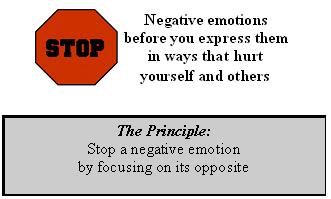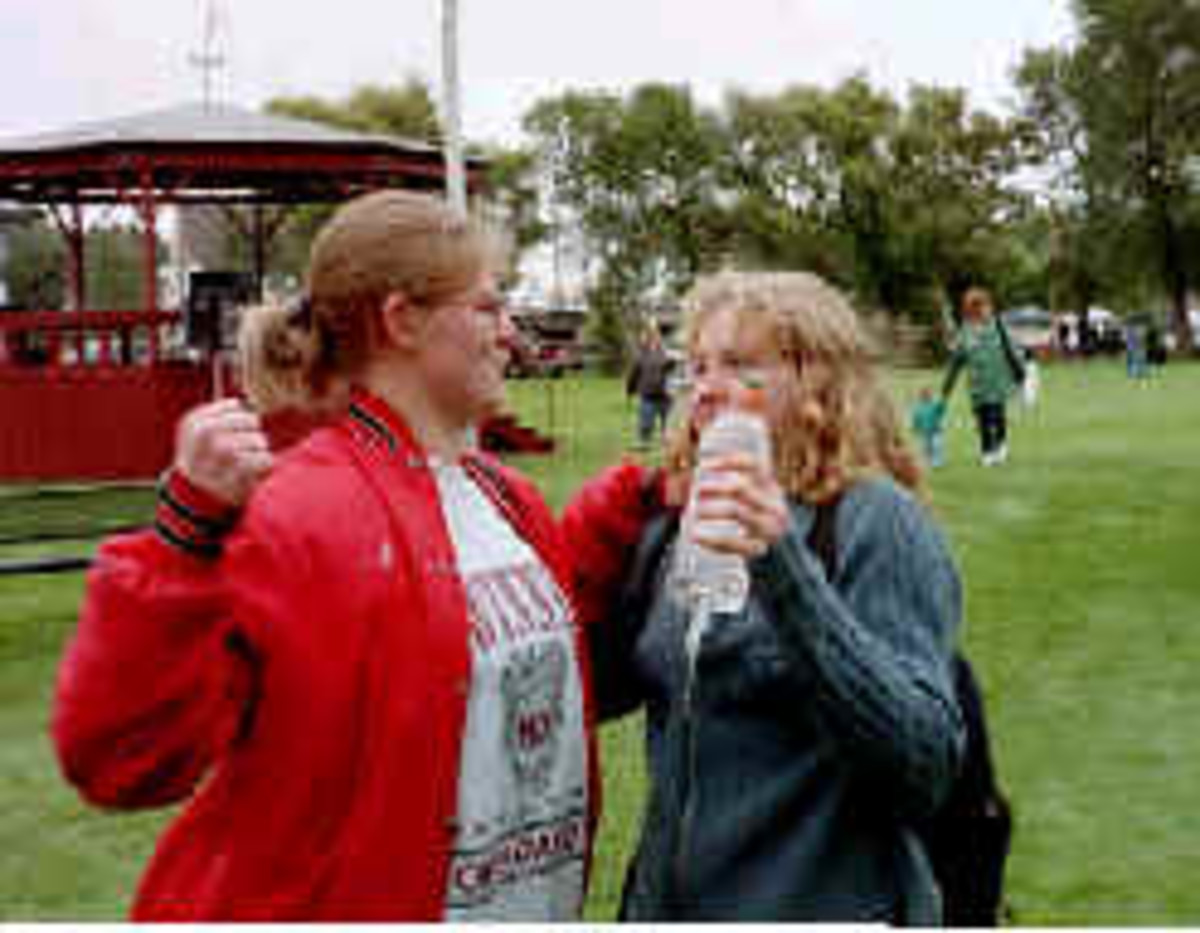- HubPages»
- Health»
- Mental Health»
- Emotions
Change Negative Emotions Before You Express Them in Ways That Hurt Yourself and Others

Are you having issues with negative emotions that you would like to change?
Emotions are subjective, they come and go with our changing circumstances in life. Understanding how they work and where they come from is the first step in bringing them under control. Negative emotions are most often experienced as automatic reactions to triggers that occur as we go about our daily activities.
For example, disappointment is the automatic reaction when we don't receive a phone call we are expecting. The trigger point is the unmet expectation. The automatic reaction of disappointment comes from thinking that the person we had hoped to hear from has decided that they do not want to speak with us at that particular moment.
Disappointment is changed to appreciation when we change our assumption to positive rather than negative. Thinking that the person does not want to speak to us is a negative assumption. When we change to a positive assumption, thinking that something kept them from calling. Maybe they are ill, or were tied up with business at work. They really did want to call, but couldn't for some reason. When they do finally call, we appreciate them and are concerned for their welfare rather than being angry that they did not call.

Negative Emotions and Their Opposites
Negative Emotion
| The Opposite
| Change Action
|
|---|---|---|
Anger
| Gratitude
| Count Blessings
|
Fear
| Faith
| Prayer
|
Stress
| Simplicity
| Relaxation
|
Jealousy
| Acceptance
| Find Common Interests
|
Embarrassment
| Humor
| Laughter
|
Sorrow
| Joy
| Sharing Memories
|
Worry
| Excitement
| Pre-planning
|
Overwhelmed
| Organized
| Charts, Graphs, and Lists
|
Hate
| Love
| Looking for the Good
|
Disappointment
| Appreciation
| Positive Assumptions
|
Misery
| Happiness
| Service to Others
|
Practical Application
In real life, it works as follows:
Stop Anger with Gratitude
Anger is a strong emotion. It occurs when you are faced with situations or behaviors that you do not like or agree with. Stop anger by finding something about the situation that you are grateful for.
Stop Fear with Faith
Fear results from seeing or hearing something that you feel threatens your present or future security. Your body's reaction to fear is the inability to act. In order to go forward, find something about the situation to believe in.
Stop Stress with Simplicity
Stress is your body's reaction to a situation that you do not like or understand. The event is seen as threatening or undesirable. Counteract the stress reaction by simplifying to find the factor that is stressful. The stress minimizes and you relax enough that you can go forward.
Stop Jealousy with Acceptance
Jealousy comes when you compare another person's strengths with your weaknesses. You always come up on the short end. Jealousy leads to covetousness, or wanting what someone else has. Covetousness leads to contention, or fighting. Stop jealousy by finding something you have in common with the other person, then you will accept each other as equals.
Stop Embarrassment with Humor
Embarrassment happens when you make a mistake in front of others, and think that they condemn you for it. To stop embarrassment, see the mistake as funny rather than a serious problem. Laugh at yourself and others will laugh with you.

Stop Sorrow with Joy
Sorrow comes when you focus on what you have lost or could have had. Sorrow will change to joy when you think of the positive things you now have because of the loss.
Stop Worry with Excitement
Worry comes from thinking "What If..." bad things happen to you or someone you love. Replace worry with excitement by changing the "What if..." statements to positive.
Stop Being Overwhelmed by Being Organized
Feeling overwhelmed comes from seeing more things to do than you have time in which to do them, especially when you face new challenges or monumental tasks. To stop feeling overwhelmed, break the task or challenge into small segments you can accomplish in short periods.
Stop Hate with Love
Hate is the result of finding something you do not like in another person, then dwelling on that dislike. In order to stop hate, find something positive about the person and dwell upon their positive characteristics. Then your hate will change to love.
Stop Disappointment with Appreciation
Disappointment comes from expectations that are not fulfilled. You want something to happen and for some reason, it does not. Stop feelings of disappointment by finding something about the situation to appreciate, or be glad about.
Stop Misery with Happiness
Misery happens when you think about the way you wish life would be, those "if Only" statements that leave you feeling that life is unfair and there is nothing you can do about it. Change these feelings to happiness by finding small reasons to do good things for others.
Work on the Strongest Emotion First
Because of the power that negative emotions have when they arise, the first step is recognizing what it is that you are feeling. For most people, angeris the most prominent. It is a secondary emotion that comes as a result of other emotions that have not been resolved. There may be many layers that are not readily recognized.
Ask yourself the following questions:
What makes you angry?
What do you do when you are angry?
What are the physical sensations associated with your anger?
How does your anger affect those in your family and workplace?
What is the payoff associated with your anger?
Once you are able to answer these questions, you will grow in your understanding of what is happening with this particular emotion. The more information you gather, the more you are in a position to change this difficult emotion. Your thought patterns will become evident as you give yourself room to make choices that you hadn't made before.
In his book, Getting Past What You Will Never Get Over, John F. Westfall speaks of an experience he had with a gentleman who was chronically angry. He asked the man how much time he needed each day to express his anger. The man thought about it and said that he needed two hours.
Westfall then had him decide on the time of day when he was to express that anger for two full hours. He could not do any more or less than that. During those two hours, he was to go someplace where others would not be disturbed. He could shout, swear, jump up and down, pound, punch, or hit objects as needed.
They met again after two weeks. The man was having difficult filling his two hours. He found that after expressing his anger that much every day, that it had diminished considerably. They determined that he only needed half an hour each day for him to express his anger. Eventually, the man was able to keep his expression of anger to a minimum few minutes a day.

Additional Tools to Help You Change Your Emotions
There are a number of tools we can use to help change our emotions if focusing on their opposites is not successful. These are as follows:
- Visualization - think of a peaceful place you like to be
- Thought Stopping - simply say "Stop" when you have bothersome thoughts
- Support Networking - call someone or visit them
- Shift of Focus - thinking of something different to distract from the negative emotion
- Time - set aside a certain amount of time to feel the emotion
- Relaxation - droop the shoulders, allow the muscles to release their tension
- Journaling - writing down what is happening and the feelings experiencing
- Music - listen to music
- Covenants - make an agreement with someone in exchange for their help
- Deep Breathing - stand up straight and breathe in as far as you can, then exhale
- Communication - talk about how you feel
Keep a record of your progress. Write down which emotion you are working on, what you are doing to change it, and what happens in the process. The more you learn about yourself, your thought patterns, and how your body works, the better able you will be to stop the negative emotions that are giving your problems.
Get feedback from your friends and family during the process. Find out if they notice any differences in the way you are acting and communicating with them. You might be surprised at the things that they notice, and how it makes them feel when they are around you.
This content is accurate and true to the best of the author’s knowledge and is not meant to substitute for formal and individualized advice from a qualified professional.
© 2012 Denise W Anderson








